Volume 3, Issue 12: Either Way
"Maybe the sun will shine today, the clouds will blow away. Maybe I won't feel so afraid. I will try to understand either way."
For the first six-plus years of my life, despite my father’s best efforts, I wanted nothing to do with sports, or any sort of physical activity at all. All I wanted to do was read. My first-grade teacher, Mrs. Burton, actually called my mother to school once because I would go off and sit by myself with a book while all the other kids were running around at recess. In T-ball, I would regularly strike out—which is hard to do when the ball never moves—and apparently one time, when I actually hit the ball, I not only ran to third base, but I ran past it, deep into left field, as far as I could go away from this boring game that Dad was making me play. Eventually Dad stopped coming to the T-ball games entirely. Who could blame him?
Dad’s last ditch effort was to take me to the old Busch Stadium one Sunday afternoon, back when you could get bleacher seats for five bucks just a few minutes before the game. And it finally happened. Ozzie Smith ran on the field with a backflip, Ernie Hays doodled on the organ all game, 55,000 Cardinals fans screamed and swooned and I think the team stole, like, 45 bases that day. Who could possibly resist? I went from the kid sneaking Beverly Cleary books (I was a The Mouse and the Motorcycle boy) to the one obsessed with memorizing every baseball statistic, the one who would bounce tennis balls off the porch steps to pretend I was Ozzie diving for balls in the hole, the one who would fall asleep listening to Jack Buck every night. Something about sports, the rhythm of it, the reliability of it, the idea that baseball had been played when my grandfather was a little boy, and when my dad was, and was still being played now that I was, it just clicked with me. Sports organized life, gave it some order. It made it make a little bit more sense.
There hasn’t been a single day since sports captured the mind and soul of that six-year-old that I haven’t thought about sports. I have other things in my life, many other things, and I feel, all told, I have put sports in their proper perspective as an adult, or at least I try to. But sports are core to who I am. I know that sports leagues are cold-blooded businesses, that the players and I are not and never would be friends, that the whole enterprise exists to separate you from your money and break your heart. That has never made me love sports any less. It’s not about any of that. It’s about sports connection to my life, and how they connect to the life of the people around me. Sports are the reason my parents were going to take their first trip to Europe this summer, sports are the reason my father and I were still able to talk during times when we were otherwise on different planets, sports are the reason I can strike up a conversation with a total stranger and have it last for hours, sports are the reason I can run out onto a Little League field with 11 very silly little kids who all have invented goofy nicknames for each other, sports are the reason my son William, in an excited rush, will wake me up just to tell me about a new fact he’s discovered, something he’s so thrilled to tell me he can barely get it out. Sports are a passion. Sports make you believe.
I know so much about sports is wrong; I am a professional sportswriter, I know all about it. But none of that matters in the end. Because sports are good.
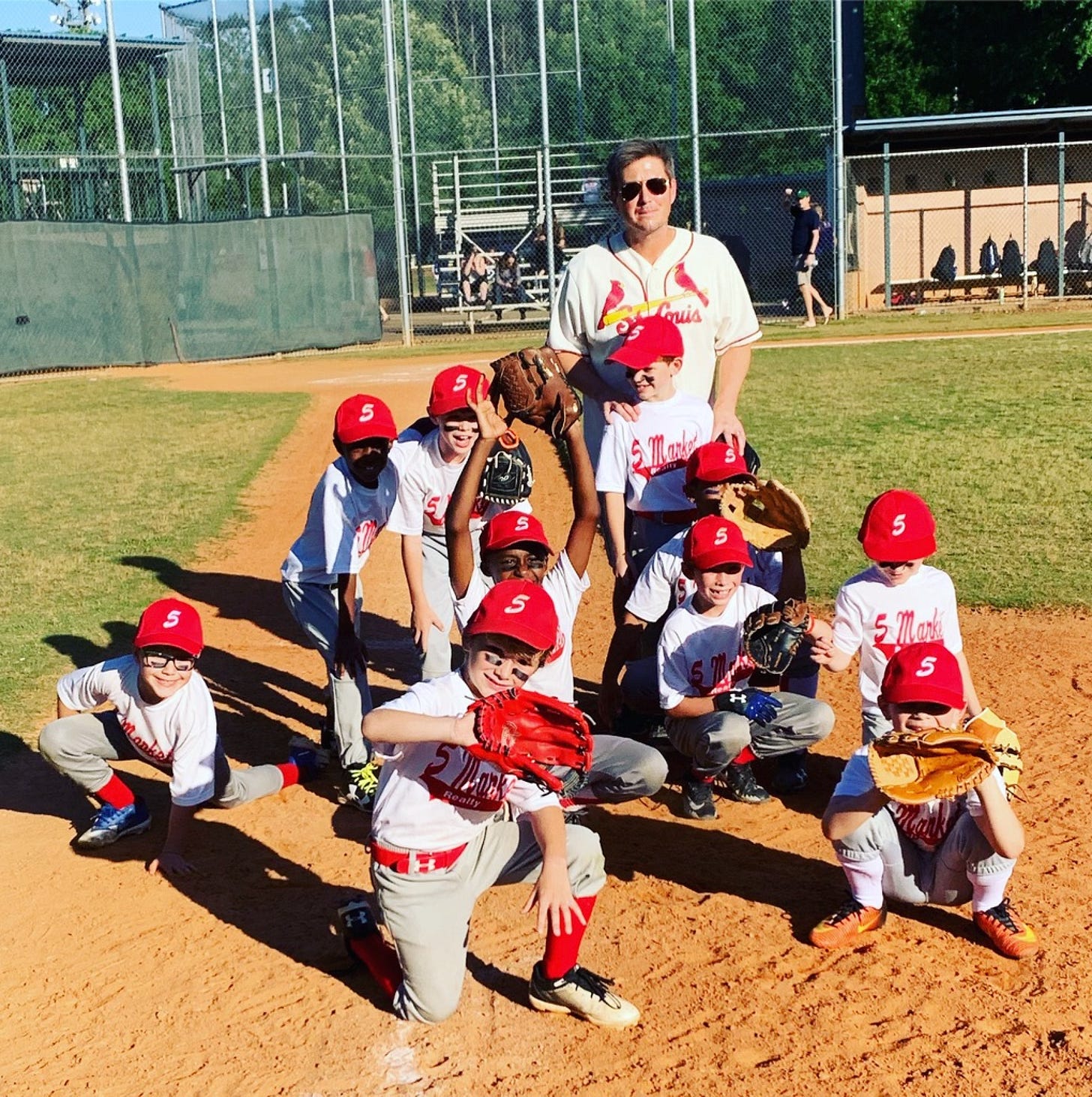
**********************
The morning after that March 11 night of Sniffly Trump, Tom Hanks and Rudy Gobert, I wrote about watching a pointless St. Peter’s-Iona men’s college basketball game in the MAAC conference tournament, hanging onto every second, knowing that game was going to have to hold me off for a long while. My parents were in attendance at the last Major League Baseball game, a Cardinals-Marlins Spring Training game I was terrified was going to turn into a super-spreader event (but doesn’t seem to have). The boys and I watched the final inning of that game on my computer, savoring every pitch, actively wincing when Giovanny Gallegos struck out former Cardinal Magneuris Sierra for the last out. That was it. That was all the baseball.
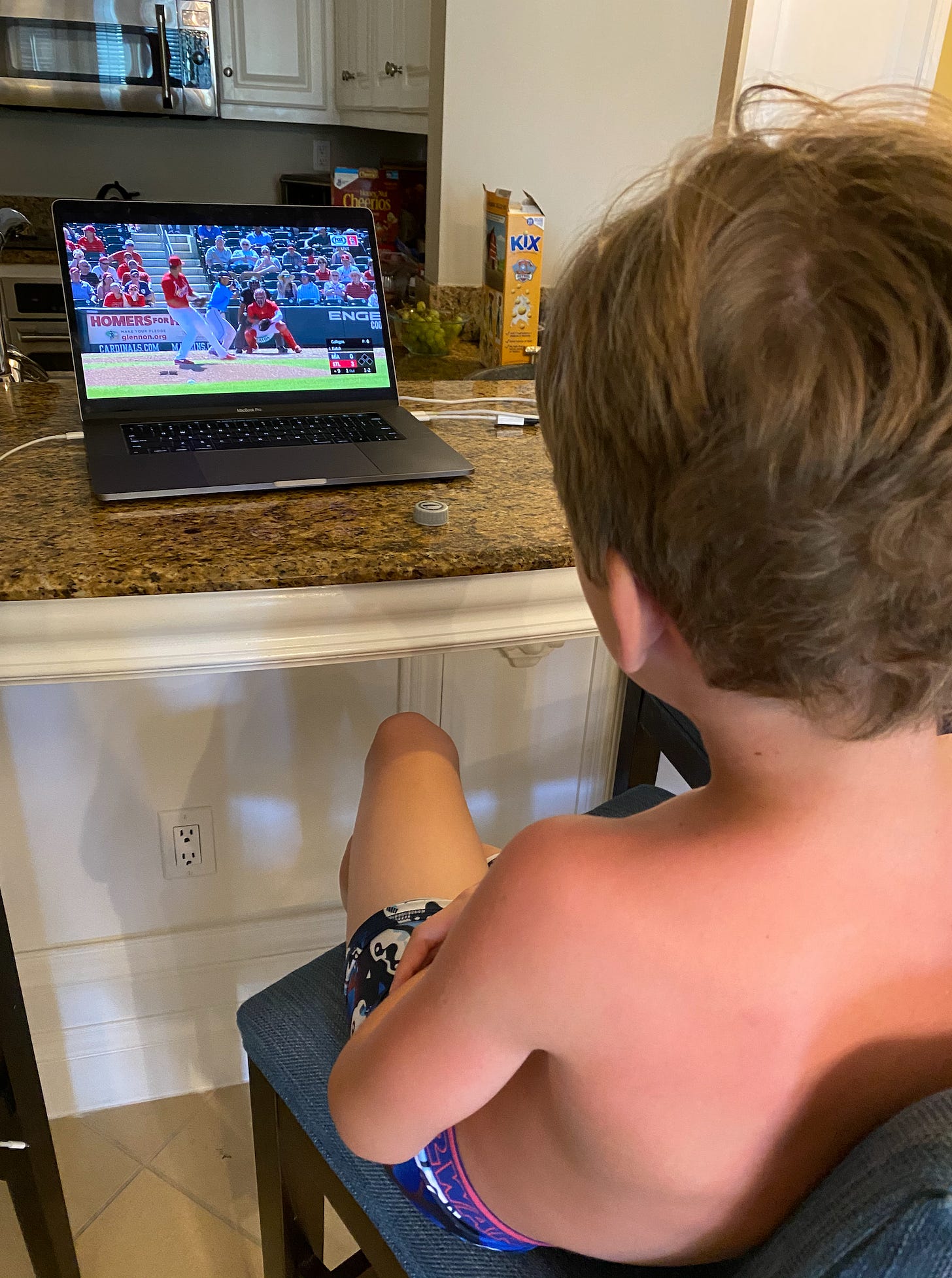
Since then, the first NCAA Tournament that would feature my Illini since 2013 was canceled, my parents’ trip to London was kiboshed and the entire world has turned upside down. Three hundred forty thousand people have died from this terrifying, mysterious disease, nearly 100,000 of them Americans, and no one is still not entirely sure what the plan to get out of this is. Most of us, nearly all of us, have been doing our part, staying inside, taking precautions, putting life on pause, with substantial emotional, physical and financial effects we surely won’t understand the full extent of for decades. This virus has upended every aspect of our lives and has exposed with stark, bracing clarity the weaknesses and inequities of the society was have constructed around ourselves. It’s very, very scary. Every day is hard.
In the last couple of weeks, as the weather has brightened and restrictions have loosened (wisely or unwisely), people have slowly emerged from their homes, trying to reengage with the outside planet while still remaining safe. We do not know yet if there has been or will be a resulting increase in infections and spread, though the idea that the world in states that have opened is anything resembling “normal” is a ludicrous one. We really don’t know anything. But people can’t stay in their homes forever. Kids can’t stay out of school forever. (Another great David Wallace-Wells piece this week looked at how much lower-income kids have fallen behind from remote learning and how the juice may have not been worth the squeeze in that regard.) Life can’t remain on pause forever. There are questions about what the strategy is, whether it’s a containment strategy or a prevention one, whether the virus is going to have to run its course through American life and we just have to protect the vulnerable, or whether we’re all still trying to shield each of us from it. There has been no consistent message from the top, and the whole outbreak is a patchwork one. We are learning new things about the virus every day, what makes a particularly dangerous activity, what we thought was dangerous now turning out to be fine, maybe, what we thought was fine now turning out to be scarier. Every day is another adjustment. But expecting people to stay inside until there is a vaccine was never a reasonable possibility, not one that even the most aggressive scientist ever advocated. People are going to try to live life.
And as we have slowly crept back toward some semblance of collective life … sports are tipping their toes in the water as well. ESPN had a big piece Friday that’s a great primer for where each major sport stands, and Seth Davis has started a terrific thrice-weekly podcast for The Athletic with updates on how each sport is trying to move forward. The NBA looks like it’ll be finishing its season in Orlando, baseball is aiming for a July 4 return (if they can figure out a financial deal, which is alarmingly far from certain) and many college football teams, kind of amazingly, are opening up campus practice facilities for players on June 1 with the hope that the season will start on time, even if we aren’t sure that college itself is starting on time. Sports are trying to come back, and they’re trying to do it now.
There is reason to be concerned about this. I’m not sure any of these leagues have figured out their safety protocols yet—baseball’s is the most aggressive, and that one already has players scoffing at how unfeasible and unnecessary some of them are—and it is odd to be thinking about putting a sports season together when none of us can be sure how this reopening is going to play out. It is more than a little possible that we get an explosion of cases over the next few months, or states start shutting down again, and the whole idea of sports returning immediately gets shelved as imprudent amidst another cascading catastrophe. It may be imprudent anyway.
But, as I wrote in my New York magazine column this week, if the states are opening, why in the world would anyone expect sports not to? When states are opening up their Orange Theories and Crunches, why would the Celtics not let their players practice at their private facilities? New York and California have been hit harder than any other state, and both their governors, among the most lauded for their handling of this pandemic up to this point (correctly or not), are saying it’s OK for sports to come back in their states, that it would be good for people. Even Dr. Fauci says sports can come back. You mean to tell me that Adam Silver and Rob Manfred are supposed to say, “sorry, but I’m going to keep the billion dollar business I run that has zero income right now shut down even though everything else is starting to open and the people in charge are actively encouraging me to proceed?”
There seems to be some sort of idea out there that sports proceeding right now is actively immoral. This idea seems to have sprung in large part, it seems, because Trump said he wanted sports to come back, and hey, I get it: At this point, that guy has been so wrong and deceitful about so many things, if he told me that the best thing I could do to stay safe was drink lots of water, exercise and eat a healthy diet of fruits and vegetables, I kinda would be tempted to start drinking bleach. But I do not think that the fact that some shitty people want sports to come back means that sports should not try to come back. In an indicative example of a common sentiment, my old colleague Drew Magary wrote this week that the return of sports is just a way for politicians to Control You, Man. I love Drew, but look at this paragraph:
In a cascade of ironic developments, sports are potentially the most effective form of PR any politician can wield right now. Imagine if the NFL season is canceled. Imagine Joe Biden pointing at Trump and going, “This guy here took your football season away.” There wouldn’t be an easier way to bury that man. Americans don’t care about all the dead bodies, because Americans don’t care about anyone anymore. But they would very much care if they turned on the TV on Sunday and found nothing but syndicated reruns of Star Trek: Voyager.
I don’t think these things are true:
Joe Biden is going to point at Trump and say, “he took your football away.”
That there “wouldn’t be an easier way to bury that man.”
That Americans “don’t care about all the dead bodies.”
That “Americans don’t care about anyone anymore.”
I do not believe that Americans just want to numb themselves with sports because who gives a shit about dead people, amirite? I do, however, think it has become fashionable to shift into a sort of default nihilism in a time of crisis and strife and very justifiable outrage about both the mistakes and overarching avarice that our executive leadership has shown during this time. But that nihilism doesn’t help anyone; all it does is position you as savvier and wiser than those suckers still deluded enough to have emotional skin in the game. And I do think there is a performative aspect to this. In a time of rampant shaming, I’ve seen people score all sorts of pat-on-back-you’re-a-good-online-citizen points for telling other people the way they are thinking about things is wrong, that they’re a better person than you, that it is you who are the real jerk. As if caring about sports means you don’t care about anything else. As if wanting sports to come back means you somehow suffered less than everyone else has.
I do not think caring about sports, and hoping they come back, makes you a jackass right now. Sports do have value, and no, I do not think that primary value is disguising the ineffectiveness of our elected leaders. (We can walk and chew gum at the same time, no?) The idea that sports are just another widget, like candy bars or boner pills, evinces a cynicism that I do not believe is based in the way people actually interact with sports . We can treat sports that way when calling out the business interests behind them, and those who try to exploit that emotional attachment we have to sports for their own benefit; that’s a large part of my job, actually! But the idea that someone who cares about sports and wants them to return somehow means they don’t care about anything else is absurdly reductionist. Having sports back will making this a little bit easier to bare, for a lot of people. It won’t fix anything about this ongoing nightmare, and it won’t fix anything about human condition. Sports has never been able to do that. But that it therefore has no value? Come on.
It’s not just an academic concern either. This odd idea has emerged that because one of the main reasons sports might return is that it’s financially advantageous for them to do so, we shouldn’t do it because it’s just going to make a bunch of billionaires money and fuck billionaires man. First off: Yes, billionaires suck, with you there, totes. But the idea we’ll all just be better off if sports goes away, and thus sticks it exclusively to those billionaires, is crazy. The sports economy is a massive one, and its tentacles spread throughout everyone’s lives, even if you don’t care about sports at all. I think college sports, in particular, are being rather reckless in their attempts to return, but I understand their reasoning (there are major universities that may shut down entirely because of all this), and yeah, that reasoning is not “if we play football we can all go get ourselves another summer home, this time on the moon.” The impact of sports on local economies is often dramatically overstated by owners trying to get public financing for their stadium—a practice cities have thankfully wised up to in recent years—but surely it’s not nothing, no? There are livelihoods on the line as sports attempt to return, from players to team employees to vendors to local restaurant and bar owners to apparel stores to coaches to (sure!) media people. These leagues have a ton to figure out, how to make this as safe as possible, how to figure out all the details, how to get it all to work, but the idea that it is somehow morally wrong for them to even consider it acts if as if they are as separate from the world as those who are constantly trying to get people to “stick to sports” try to pretend they are. There are real-world consequences to sports not coming back. If we are waiting for a vaccine to get sports back going, there are not going to be many sports left to come back to.
This is in many ways the same calculation all of us are working our way back toward now, two-and-a-half months into this: How much risk are we willing to accept? The closest we can get to zero risk means all of us staying in our homes until this is over, which is not feasible. (It’s another reason all the time the federal government wasted is so infuriating.) That’s where we are with this now: Figuring out our risk tolerances. Everybody has a different definition. We all have our thresholds on this: To me, asking unpaid college students to play for our amusement in a pandemic sure does push close to that threshold. But the idea that sports are trying to come back is not inherently, of itself, some sort of moral hazard. People are not pricks for trying to find something familiar and reassuring to hold onto, and those that are trying to provide that, and yes, also (and likely mostly) restart a sports economy that is unbalanced but also vital to very large numbers of people, are not inherently shitheads out solely to do the bidding of corrupt and incompetent politicians. We’re all dumb human beings just feeling through the dark and trying to figure this out. We’ve made a ton of mistakes already, and we’ll make some more. But acting as if someone is inherently wrong for trying to salvage, the best they can, something that people care about … that attitude doesn’t help anybody. I’d love to live in a perfect world where everyone’s priorities are lined up in exactly the right place. But we don’t. So we can just do what we can, with what we have.
It’s possible none of this works. It’s possible another wave breaks out, or the games cannot be made safe enough, or they can’t figure out the money. We can lament then. But the attempted return of sports is not a conspiracy, or a self-evident malfeasance. It’s just people trying to do what they can. We can never truly return to normal; there is nothing normal about this, and there won’t be for a long time. But people can try to grasp the best they can, what they can, while they can. It’s OK to miss sports, just like it’s OK to miss anything that gave you solace, that provided you consistency, or community, or just distraction. It’s OK to want that to come back. It’s OK to want to keep moving forward. It’s OK to still believe.
Here is a numerical breakdown of all the things I wrote this week, in order of what I believe to be their quality.
Sports Leagues Are Following the States on Sports Returning. The States Better Be Right, New York. And this is the piece that inspired this whole newsletter. I hope I explained my mindset fully.
“The Last Dance” Was Fun, But I’m Glad It’s Over, NBC News. Sorry, but this thing made me like Michael Jordan less, not more.
Better Know a Player: Terry Pendleton, MLB.com. The rare player beloved by both Braves fans and Cardinals fans.
Baseball Year in Review: 1984, MLB.com. This piece was double plus ungood.
The Thirty: The Best Moments at Every MLB Stadium, MLB.com. Yes, I’ll confess, the Astros one is a bit of a dig. I couldn’t resist.
This Week in Genre History: Indiana Jones and the Crystal Skull, SYFY Wire. Holy cow this movie is still pretty terrible!
What To Watch Instead: Fast and Furious 9, Vulture. I had completely forgotten about Vin Diesel’s Find Me Guilty. Sidney Lumet!
PODCASTS
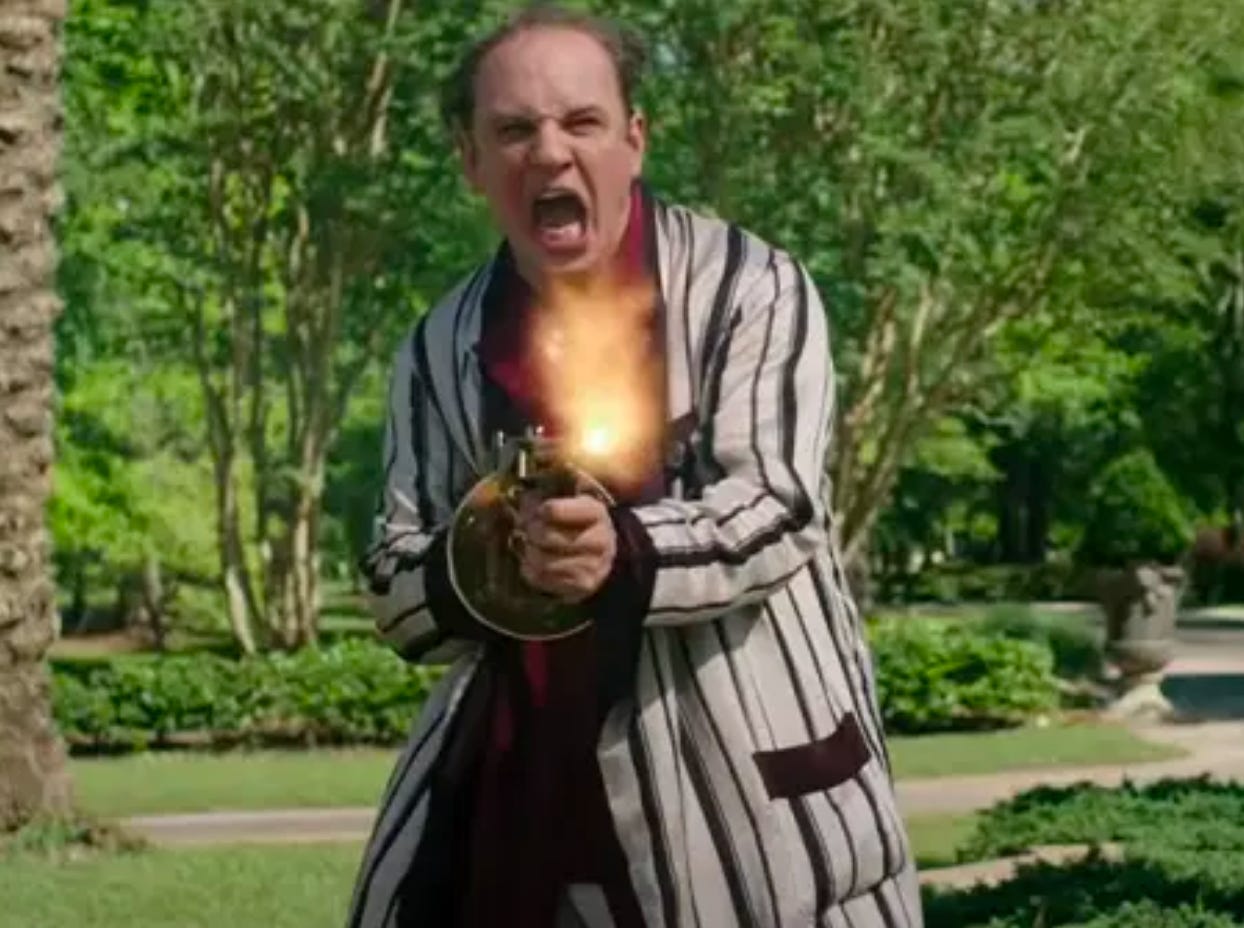
Grierson & Leitch, we reviewed an actual new movie, Josh Trank’s Capone. We also talked about Antonioni’s L’Avventura and Fassbinder’s In a Year of 13 Moons.
Waitin' Since Last Saturday, no show this week.
LAUGH THAT I NEEDED THIS WEEK
I not only miss baseball: I miss stupid, pointless fights with my friends who are Cubs fans. I miss all of it.
LONG STORY YOU SHOULD READ THIS MORNING … OF THE WEEK
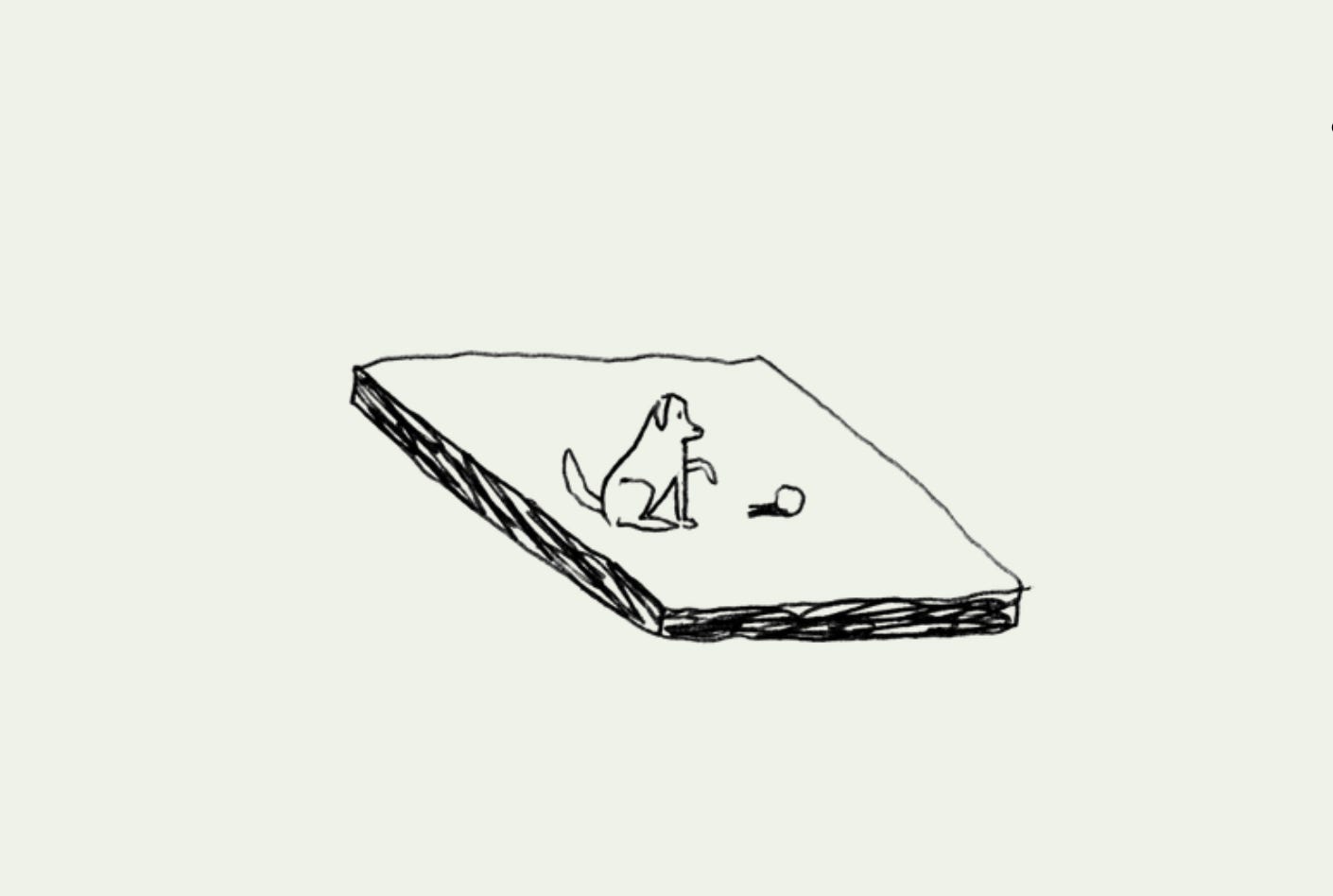
“There’s No Escaping From Yourself,” Sam Anderson, The New York Times Magazine. Read everything Sam Anderson writes, always.
Also, this Slate piece provides a simple framework that may just explain everything.
ONGOING LETTER-WRITING PROJECT!
The NBC piece last week inspired a whole new batch of people to write, which was terrific. (One guy sent me a postcard with the word “CATFARTS” on it. It’s now on our fridge.) So send 'em:
Will Leitch
P.O. Box 48
Athens GA 30603
CURRENTLY LISTENING TO
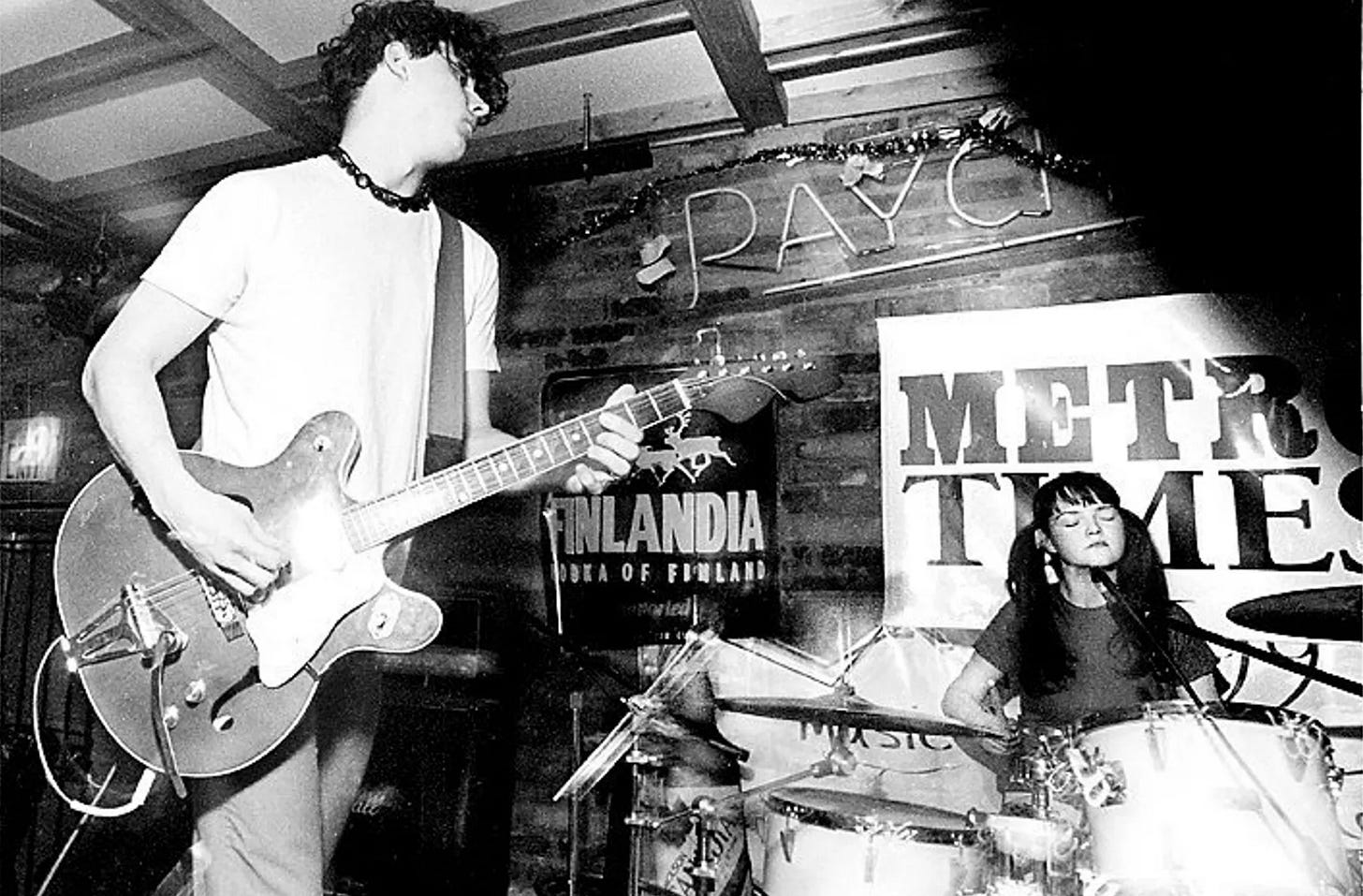
“Broken Bricks,” The White Stripes. I am very much a sucker for early, very early, White Stripes. This song is more than 20 years old!
We are remaking The Searchers out here.
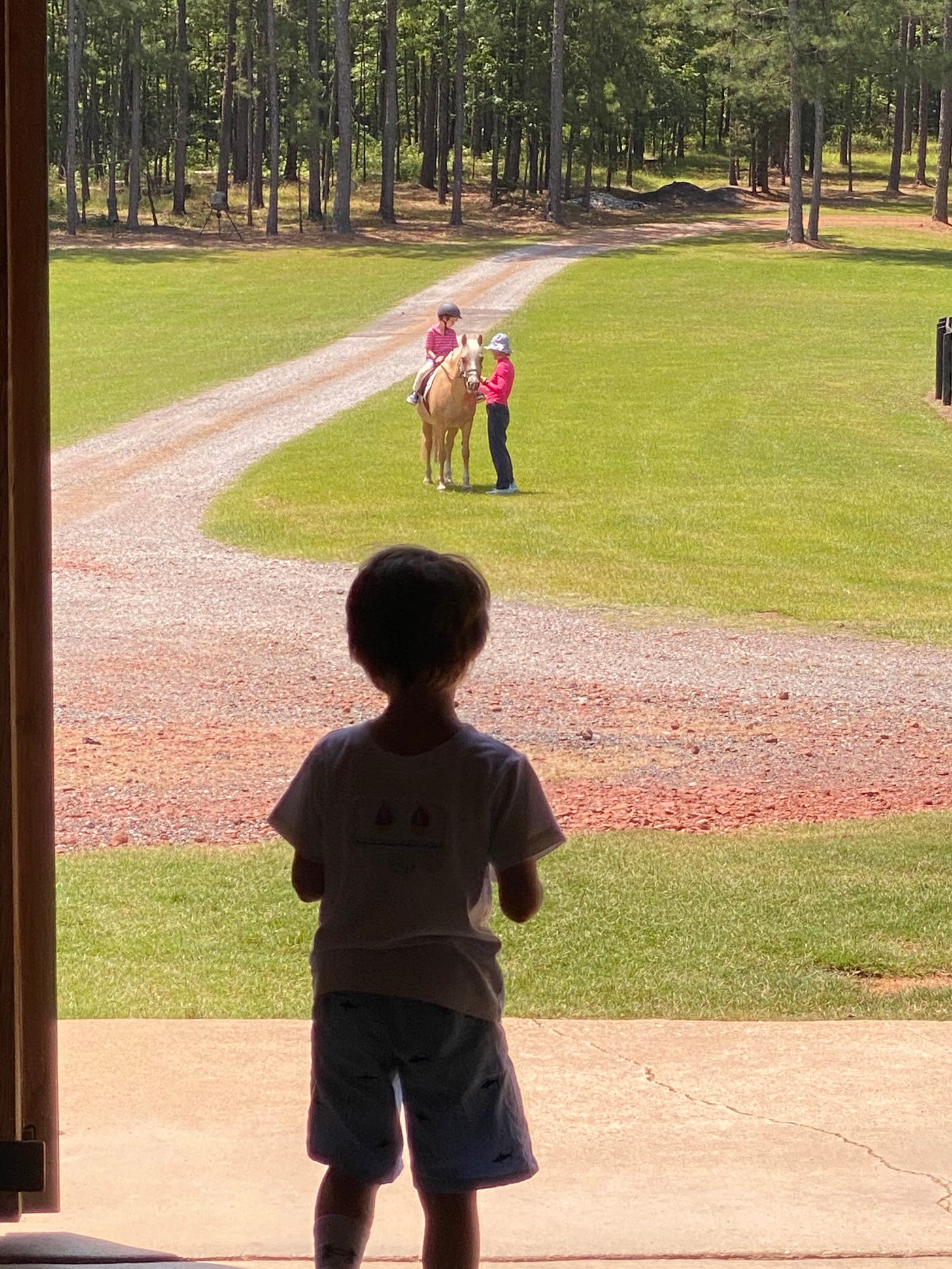
Be safe out there, all.
Best,
Will
